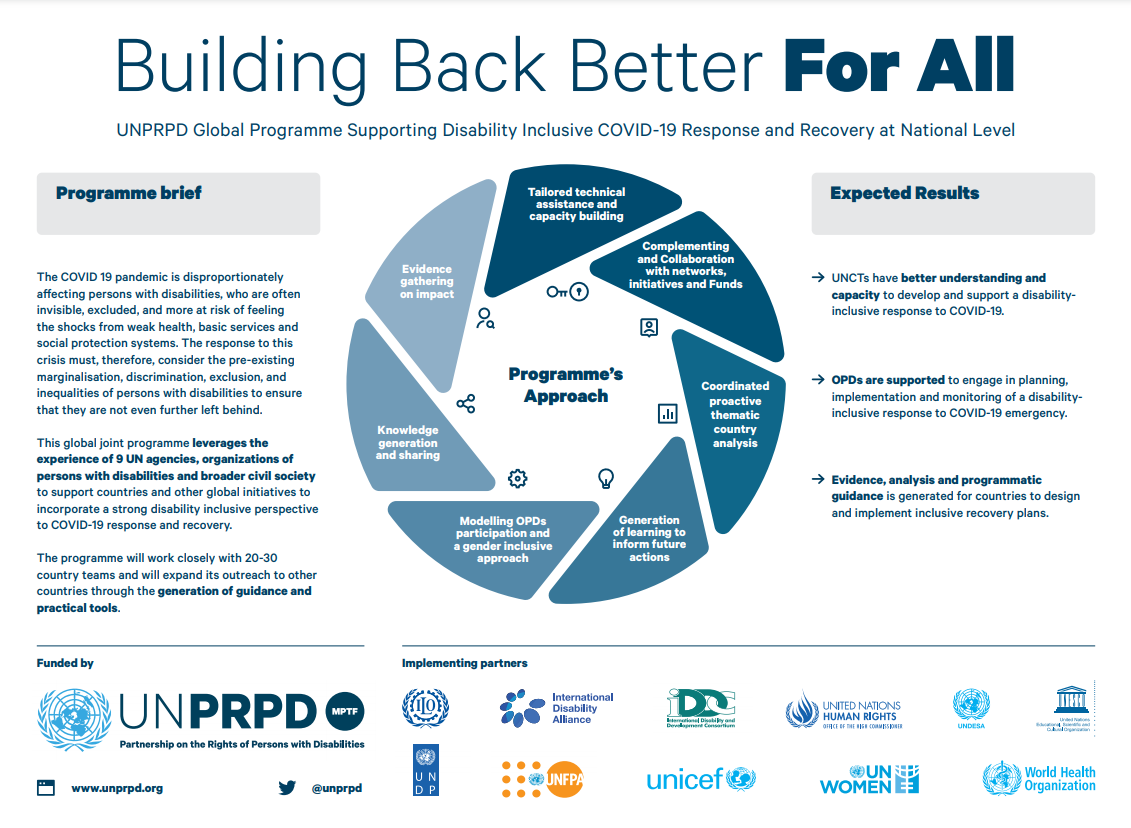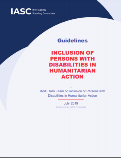UN COVID-19 Working Group
Following the publication of the UN Secretary-General's Policy Brief: A Disability-Inclusive COVID-19 Response in May 2020, the UN Under-Secretary-General Ana Maria Menéndez convened an emergency time-bound Working Group on the COVID-19 response.
The Working Group aims to identify specific priorities and entry points and to strengthen disability inclusion in the mainstream UN COVID-19 response and recovery. It has established four workstreams which are undertaking concrete actions to support greater inclusion of persons with disabilities across the following areas:
1. Funding, including mainstream COVID-19 funding mechanisms
2. Health response and recovery
3. Socioeconomic response and recovery
4. Humanitarian response and recovery.
WHO leads the workstream on health response and recovery with the participation of other agencies and organizations such as the Economic and Social Commission for Western Asia, the Executive Office of the Secretary-General, the Office of the High Commission for Human Rights, International Telecommunication Union, the Special Envoy of the UN Secretary-General on Disability and Accessibility, UN Entity for Gender Equality and the Empowerment of Women, Humanity and Inclusion, International Disability and Development Consortium, and International Disability Alliance.
One of the outcomes of the workstream will be the first WHO-ITU Standard for accessibility of telehealth and e-health applications which is expected to be published in 2021.
Bridging the Gap is a project funded by the European Union (EU). The project carries out actions aimed at increasing the inclusion of people with disability at both the international and country level.
The project is a targeted response to make development cooperation inclusive of people with disability, which is an obligation for the EU and Member States as parties to the Convention on the Rights of Persons with Disabilities (CRPD) and which can have a significant impact in improving the social inclusion and promoting the rights of people with disability. The initiative consists of two mutually reinforcing parts:
- Working at the global level to develop tools to promote the rights, participation, and inclusion of persons with disabilities in the implementation of the 2030 Agenda, in line with the CRPD.
- Mainstreaming disability in international cooperation to develop, implement and monitor disability–inclusive sector policies and services in a participatory manner and in line with the CRPD.
WHO collaborates with both the EU and the Office of the United Nations High Commissioner for Human Rights on Bridging the Gap to develop human rights indicators for the implementation of the CRPD in support of the Sustainable Development Goals.



